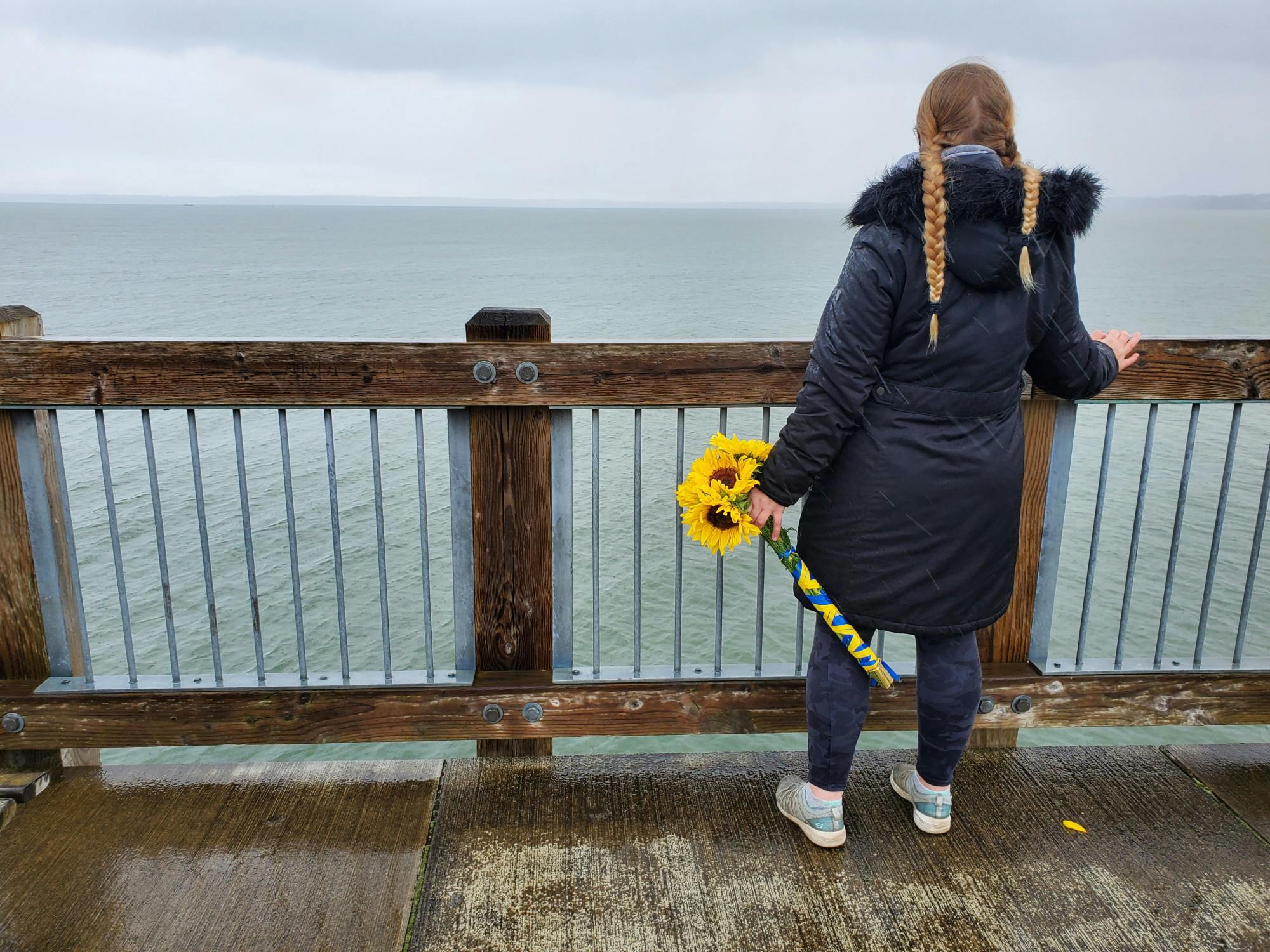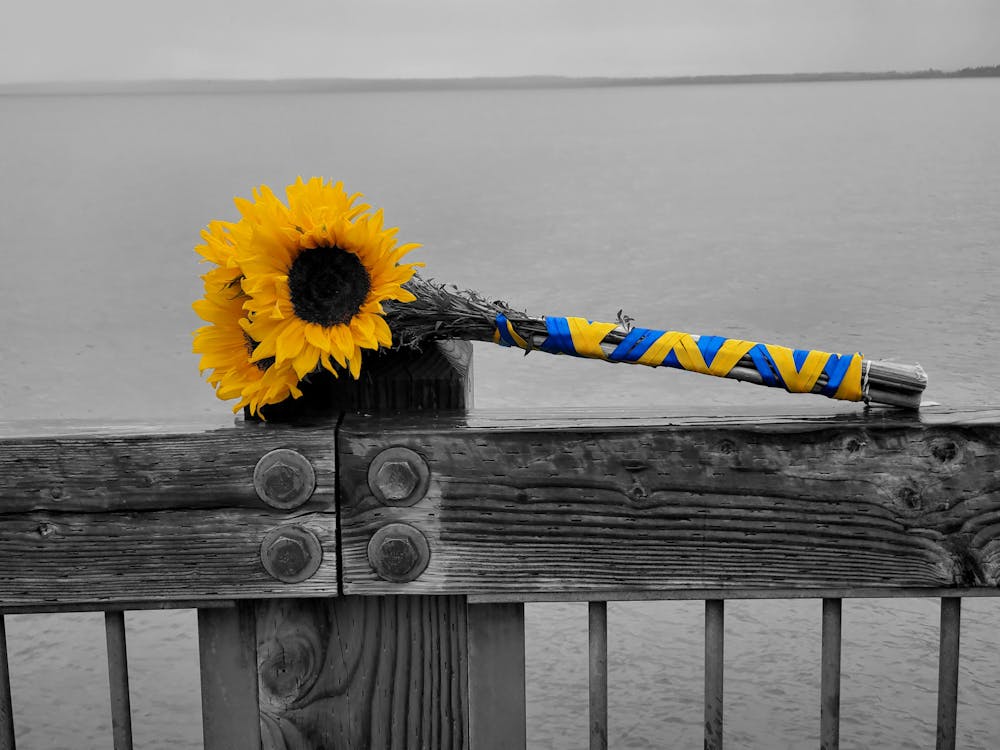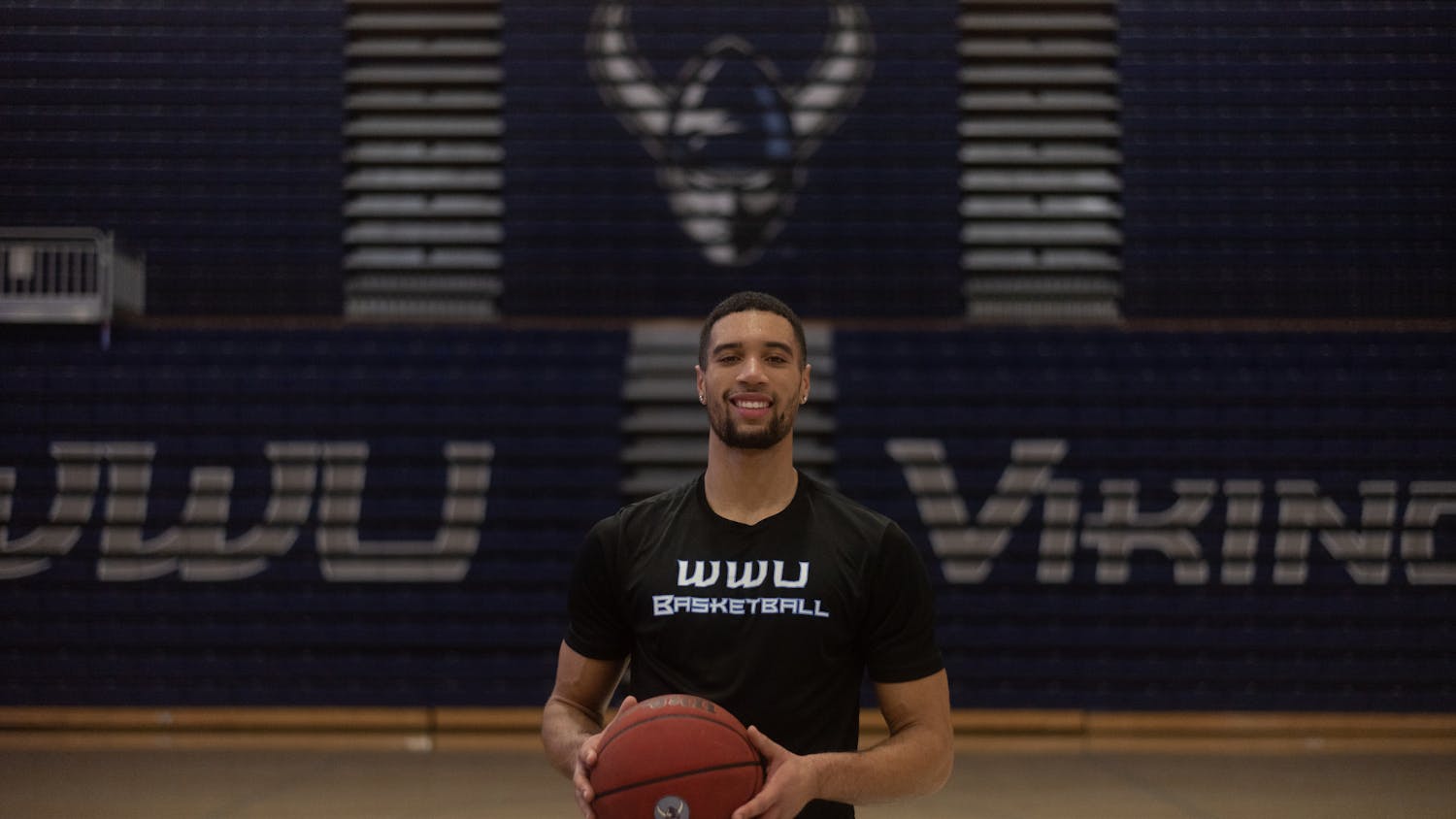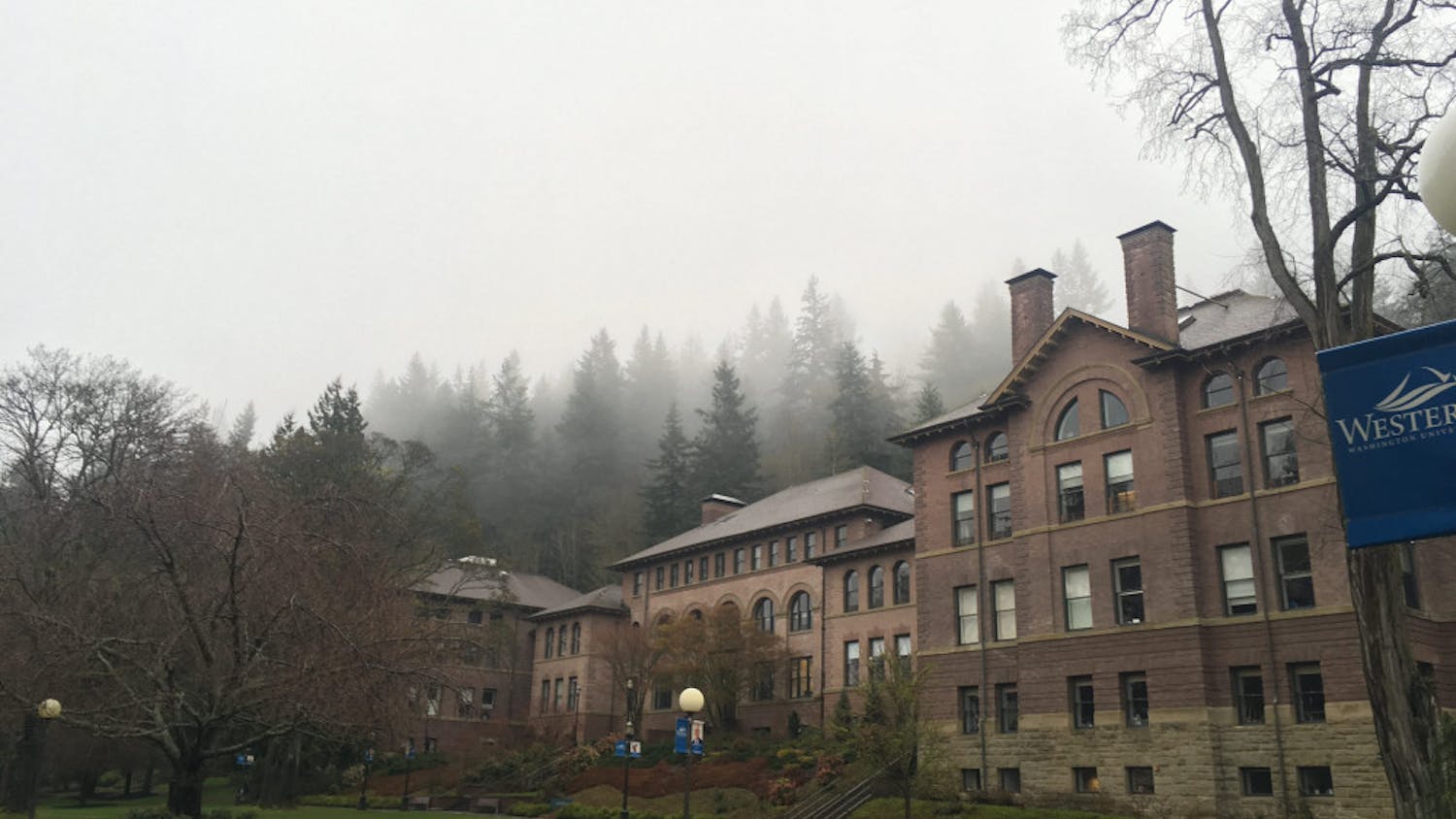The Russian invasion of Ukraine has, undoubtedly, been the most dominant news story in the world. It has been both shocking and unsurprising to the rest of the world, and what many want right now is global support for Ukraine and its people.
Though adequate support has not come yet at this time, simply making sense of the conflict is another priority for communities around the world. Such is the case for Western Washington University's faculty of political science and history.

We are giving the floor to them, to spread knowledge of what is happening, what the invasion means for the world and why students should care about this event.
Professor Cynthia Horne of the Department of Political Science at Western said Russia’s invasion of Ukraine will be remembered by not only the world, but by the North Atlantic Treaty Organization, an intergovernmental military alliance that includes 30 countries in Europe and North America.
“Yes, this will be remembered as a historic event and hopefully not because it was the start of a larger war,” Horne said. “Even if Russia withdraws from Ukraine, this violation of international norms, rules and values associated with respect for sovereignty and just war criteria – well, they have been broken.”
Certainly, Horne said, NATO will be rethinking its military security once this conflict has come to an end.
Within the conversation about Russia’s invasion of Ukraine, the “World War III” idea has been popping up on social media like wildfire, and though it seems dramatic, renowned publications are just using different language to convey the same concerns.
A headline in The Washington Post reads, “Rapid escalation of Ukraine crisis fuels fear of confrontation between Russia and the West.” A recent NPR article bears the headline, “A part of the NATO treaty could turn Russia's invasion of Ukraine into a wider war.”
Jim Townsend, who worked at the Pentagon on NATO and Europe policy under former President Barack Obama, told The Washington Post he worries a “miscalculation, a misunderstanding, an accident, a mistake” could spark a more globally involved war.
Horne said she’s also concerned about escalation, and an accidental engagement by Russia, in this case, is all too possible and could implicate NATO in the conflict.
“If Russia indirectly or accidentally attacks a NATO ally, this will trigger Article 5 of the collective security arrangement,” Horne said. “This requires all NATO members to engage and protect.”
According to the NATO website’s briefing on Article 5, the first and only time Article 5 was invoked was after the World Trade Center was attacked on Sept. 11, 2001. The briefing also notes, “an attack against one Ally is considered as an attack against all Allies.”
But why should we care? Fears of a third world war are valid, but it frankly comes down to what is being done now as Vladimir Putin continues his aggression.
Horne said conflict between great world powers is something we haven’t seen since WWII. Even though NATO is not militarily involved, friction is still building amongst Western nations and Russia.
“The potential for this war to escalate into a great power war – with all the weapons of mass destruction and loss of life that implies – is something everyone should pay attention to,” Horne said. “Putin has been accused of war crimes, for the nature of the attacks on citizens and civilians. As global citizens, all students should pay attention to what this means and what can be done about it.”
Yuliya Tverdova, a political science professor at Western, said that offering our humanity is paramount, among other methods of support.
“I think people, in general, should pay attention because other people’s right to life is violated,” Tverdova said. “This is the most fundamental human right we all share.”
Officially, the United Nations reported that 227 Ukrainian civilians had been killed and 525 injured between Feb. 24, and Mar. 1, according to The New York Times. However, The Times reported that the U.N. said its numbers are low estimates, and The Washington Post claims the numbers have grown since that report.
Sarah Zarrow, Professor of history at Western, said being indifferent to Ukraine’s situation is a stance all its own.
“To be neutral in this kind of time means to say you’re fine with Ukrainians being slaughtered,” Zarrow said. “So I’m worried that people's knee-jerk peacenik impulses will lead them into the plans of Putin.”
NPR reports that The Russian Defense Ministry has confirmed 498 Russian soldier deaths and 1,597 more injured. Ukraine has yet to release its casualty figures.
Tverdova said stopping these deaths relies upon the sanctions imposed on Russia and what other global citizens are willing to suffer economically.
“Russia has been a significant international trade partner, and cutting Russia’s oil and gas exports, if it were to happen, may greatly raise energy prices,” Tverdova said. “Students and young people need to understand these relationships in our highly globalized world and decide for themselves what price they are willing to pay for stopping Putin.”
Russia’s integral nature in the international energy sector is significant. Susan Costanzo, who teaches history of Russia and the Soviet Union at Western, believes that it shields Putin from the full force of international disapproval.
“Maybe the fact is that the scales have tipped too much, and people in Europe are too dependent on Russian natural gas and Russian oil,” Costanzo said. “And so now someone like Putin thinks that they can act with impunity.”
Ironically, economic interdependence was widely seen as a peacemaking force in international politics, but the current situation makes that argument more unsure.
“That whole economic interdependence argument has gotten, actually, way more complicated since the first cold war,” Costanzo said.
Sacrifice in war can mean several different things. And for the U.S., at least, suffering increased energy prices is among the most immediate. But, we would argue that you can’t put a price on Ukrainians sacrificing their lives for their country.
In our interconnected global economy, war hits home in more places than one, but those global sacrifices should be made to give the direct victims a fighting chance.
Uncertainty is the common theme in the conflict in Ukraine. Putin has reached a point of no return, Tverdova said, and his means to the end of this conflict are unknown.
“A few days ago, I would say [NATO military involvement] was impossible,” Tverdova. “Right now, I hesitate to say that anything is impossible. Still, Putin is also a master of bluffing, and he may believe all he needs to win are credible threats of further escalation.”
Costanzo also feels like Putin has underestimated the resolve of Ukrainians, noting that “Ukrainians have historically resisted Russian oversight, repeatedly.”
With Ukraine’s self-identity at stake, Sarah Zarrow, Professor of History at Western, explains that Ukraine refuses to concede to Putin’s aggression.
“Since 2014, there has been a stronger sense amongst all Ukrainian citizens of being Ukrainian,” Zarrow said. “I do think that living under anything like Putin’s Russia right now would be absolutely intolerable for Ukrainians, as it is intolerable for a lot of Russians.”
There is also something to be said for Russians during this time. Not all citizens of Russia support the war, and they too should have a voice.
Thousands of Russian citizens have protested Putin’s full-scale invasion of Ukraine and don’t want “blood on their hands,” PBS reports.
Zarrow expressed her concern for Russian citizens who may be drafted into a war they did not choose.
“I’m concerned for Russians, I’m not very concerned about Putin, but I’m concerned for Russians whose families or they themselves are conscripted into a war they didn’t choose while the sons of billionaire oligarchs are definitely not fighting in this war and are doing just fine,” Zarrow said.
Tverdova, who was born in the Soviet Union, expressed her view on Putin’s actions with support for Ukraine. We leave you with her words:
“I am against this war. I would like Ukrainians to know that there are many Russians that are against this war. Many of us are feeling shock and disbelief, but also a deep sense of shame for the Russian government and anyone who supports this war. Ukraine has a right to be free and independent.”
Max Larsen (he/him) is a third year News Editorial major and opinion reporter for The Front. He enjoys writing just as well as cars and old music. You can contact him at maxlarsen.thefront@gmail.com






